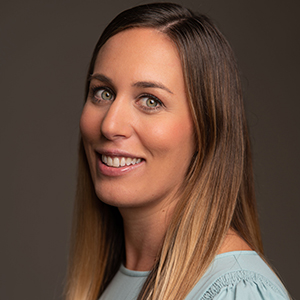Access Free VA Claims Assistance

Free Cancer Guide for Veterans

Find a Top Mesothelioma Doctor

The VA Fiduciary Program helps veterans with mesothelioma by appointing a trusted person to take over the management of their financial affairs and VA benefits. It allows the veteran to focus on their health and recovery from mesothelioma treatment. Those eligible to become a fiduciary include spouses, family members, friends, and a professional or court-appointed fiduciary.
A United States Department of Veterans Affairs (VA) fiduciary helps veterans manage their finances and VA benefits. This is helpful for veterans with mesothelioma who are coping with severe disabilities caused by the cancer and its treatment. It is also available to veterans with other diseases caused by asbestos, including asbestos-related lung cancer and asbestosis.
It is common for mesothelioma to cause acute pain and limit the veteran’s ability to perform daily activities, such as taking care of their financial affairs. A fiduciary can take over the burden of managing finances and also help the veteran maximize the VA benefits available to them.
Access Free VA Claims Assistance

Free Cancer Guide for Veterans

Find a Top Mesothelioma Doctor

Veterans with mesothelioma coping with severe disabilities can benefit from electing a fiduciary who can manage their finances and ensure they get the most out of their VA benefits.
These veterans have access to many different programs within the VA, such as a VA disability claim for their cancer, VA Aid and Attendance benefits, heath care, Geriatrics and Extended Care benefits, Dependency and Indemnity Compensation claims, a VA pension and other benefit programs.
Applying for these programs and making sure they get the most out of them can feel overwhelming to a veteran coping with pain and side effects caused by mesothelioma and its treatment. In 2022, the VA updated its guidelines on the fiduciary appointment process.
Compensation provided by the VA may help veterans afford living expenses, health care expenses, rehabilitation therapies, burial expenses, caregiver support and financial support for their dependents.

Don’t miss out on the benefits you deserve. Find out what VA benefits are available for veterans like you.
Get a RecordingFamily members of the veteran are the most commonly appointed VA fiduciaries. Friends and professional fiduciaries may also be appointed.
The VA will schedule a field examination meeting with the veteran and the fiduciary of their choice. The field examiner will help determine if the chosen fiduciary is the best option for the veteran.
During the meeting the examiner will review the veteran’s financial information and their VA benefits information. It is important for the veteran and their chosen fiduciary to arrive at the meeting with all relevant financial details at hand, such as their income, personal assets, bank statements and recurring expenses.
If the VA determines the veteran needs a fiduciary, but the veteran disagrees and wishes to handle their finances and benefits on their own, they can appeal the VA’s decision.
The application process begins with the fiduciary completing VA Form 21P-4706b, which is also known as the VA Fiduciary’s Account (Fillable) form. The fiduciary will provide a variety of financial information about the veteran in this form. The form must be signed by the fiduciary before submission.
There is a separate form for when a court determines the veteran needs a fiduciary. This form is known as VA Form 21P-4706c. It is common for a court-appointed fiduciary to complete this form.
Because the VA wants to ensure the fiduciary is performing the job well and looking after the best interests of the veteran, it performs ongoing reviews. This ensures accountability and prevents the misuse of benefits, which protects the veteran and their financial assets.
Recommended ReadingStay up-to-date on treatment, research, clinical trials, doctors and survivors
The information on this website is proprietary and protected. It is not a substitute for professional medical advice, diagnosis or treatment. Any unauthorized or illegal use, copying or dissemination will be prosecuted. Please read our privacy policy and terms of service for more information about our website.
This website and its content may be deemed attorney advertising. Prior results do not predict a similar outcome.
The Mesothelioma Center’s claim as the most trusted resource is based on our more than 150 5-star Google and BBB reviews. Our organization also helps more than half of all mesothelioma patients annually diagnosed.
Your web browser is no longer supported by Microsoft. Update your browser for more security, speed and compatibility.
If you are looking for mesothelioma support, please contact our Patient Advocates at (855) 404-4592
The Mesothelioma Center at Asbestos.com has provided patients and their loved ones the most updated and reliable information on mesothelioma and asbestos exposure since 2006.
Our team of Patient Advocates includes a medical doctor, a registered nurse, health services administrators, veterans, VA-accredited Claims Agents, an oncology patient navigator and hospice care expert. Their combined expertise means we help any mesothelioma patient or loved one through every step of their cancer journey.
More than 30 contributors, including mesothelioma doctors, survivors, health care professionals and other experts, have peer-reviewed our website and written unique research-driven articles to ensure you get the highest-quality medical and health information.
My family has only the highest compliment for the assistance and support that we received from The Mesothelioma Center. This is a staff of compassionate and knowledgeable individuals who respect what your family is experiencing and who go the extra mile to make an unfortunate diagnosis less stressful. Information and assistance were provided by The Mesothelioma Center at no cost to our family.LashawnMesothelioma patient’s daughter


Asbestos.com. (2024, February 2). VA Fiduciary Program and Mesothelioma. Retrieved January 8, 2026, from https://www.asbestos.com/veterans/va-claims/fiduciary/
"VA Fiduciary Program and Mesothelioma." Asbestos.com, 2 Feb 2024, https://www.asbestos.com/veterans/va-claims/fiduciary/.
Asbestos.com. "VA Fiduciary Program and Mesothelioma." Last modified February 2, 2024. https://www.asbestos.com/veterans/va-claims/fiduciary/.

Danielle DiPietro is a Financial Advocate and VA-accredited claims agent at The Mesothelioma Center, the nation’s most trusted mesothelioma resource. She helps all mesothelioma patients and their families, including veterans, find the best answers to their financial and VA questions.
Our fact-checking process begins with a thorough review of all sources to ensure they are high quality. Then we cross-check the facts with original medical or scientific reports published by those sources, or we validate the facts with reputable news organizations, medical and scientific experts and other health experts. Each page includes all sources for full transparency.
Please read our editorial guidelines to learn more about our content creation and review process.
